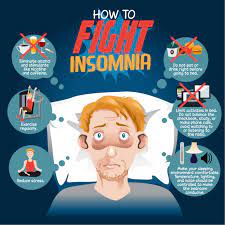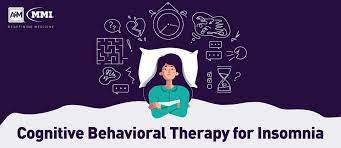The Impact of Stress-Induced Insomnia on Your Health
Insomnia is a common sleep disorder that affects millions of people worldwide. While there are various causes of insomnia, one significant factor that can trigger or exacerbate this condition is stress. Stress-induced insomnia occurs when the body and mind are unable to relax and unwind, leading to difficulty falling asleep or staying asleep throughout the night.
When you experience stress, your body releases hormones like cortisol and adrenaline, which can increase alertness and make it challenging to wind down at night. This heightened state of arousal can disrupt your natural sleep-wake cycle and result in insomnia.
Effects of Stress-Induced Insomnia
The effects of stress-induced insomnia go beyond just feeling tired the next day. Chronic lack of quality sleep can have a profound impact on your overall health and well-being. Some consequences of stress-induced insomnia include:
- Impaired cognitive function and memory
- Irritability, mood swings, and increased emotional reactivity
- Weakened immune system and increased susceptibility to illnesses
- Weight gain or difficulty losing weight
- Increased risk of developing chronic conditions like heart disease and diabetes
Managing Stress-Induced Insomnia
If you’re struggling with stress-induced insomnia, there are several strategies you can try to improve your sleep quality:
- Practice relaxation techniques such as deep breathing, meditation, or progressive muscle relaxation before bedtime.
- Create a calming bedtime routine to signal to your body that it’s time to unwind.
- Avoid stimulants like caffeine and electronic devices close to bedtime.
- Exercise regularly but avoid vigorous activity close to bedtime.
- Consider seeking support from a therapist or counselor to address underlying stressors contributing to your insomnia.
Remember that managing stress-induced insomnia is essential not only for improving your sleep but also for safeguarding your overall health and well-being. By taking proactive steps to address the root cause of your sleep troubles, you can restore balance in both your body and mind.
Overcoming Stress-Induced Insomnia: Understanding Its Resolution and Remedies
Will stress induced insomnia go away?
Stress-induced insomnia can be a challenging condition to manage, but the good news is that it is often temporary and can improve with the right interventions. By addressing the underlying stressors contributing to your sleep difficulties and implementing healthy sleep habits and relaxation techniques, you can significantly reduce the impact of stress-induced insomnia on your life. It’s important to seek support from healthcare professionals or therapists if needed to develop a personalized plan for managing stress and improving sleep quality. With time, patience, and consistent effort, many individuals find that their stress-induced insomnia diminishes, allowing them to enjoy restful nights and improved overall well-being.
How do you fix stress induced insomnia?
To address stress-induced insomnia, it’s essential to adopt a multifaceted approach that targets both the underlying stressors and the sleep disturbances. One effective strategy is to prioritize stress management techniques such as mindfulness meditation, deep breathing exercises, or engaging in regular physical activity to help calm the mind and body before bedtime. Establishing a consistent sleep routine, creating a relaxing sleep environment, and avoiding stimulants like caffeine close to bedtime can also promote better sleep quality. Seeking professional guidance from a healthcare provider or therapist may be beneficial in identifying and addressing the root causes of stress-induced insomnia, leading to long-term solutions for improved sleep health.




